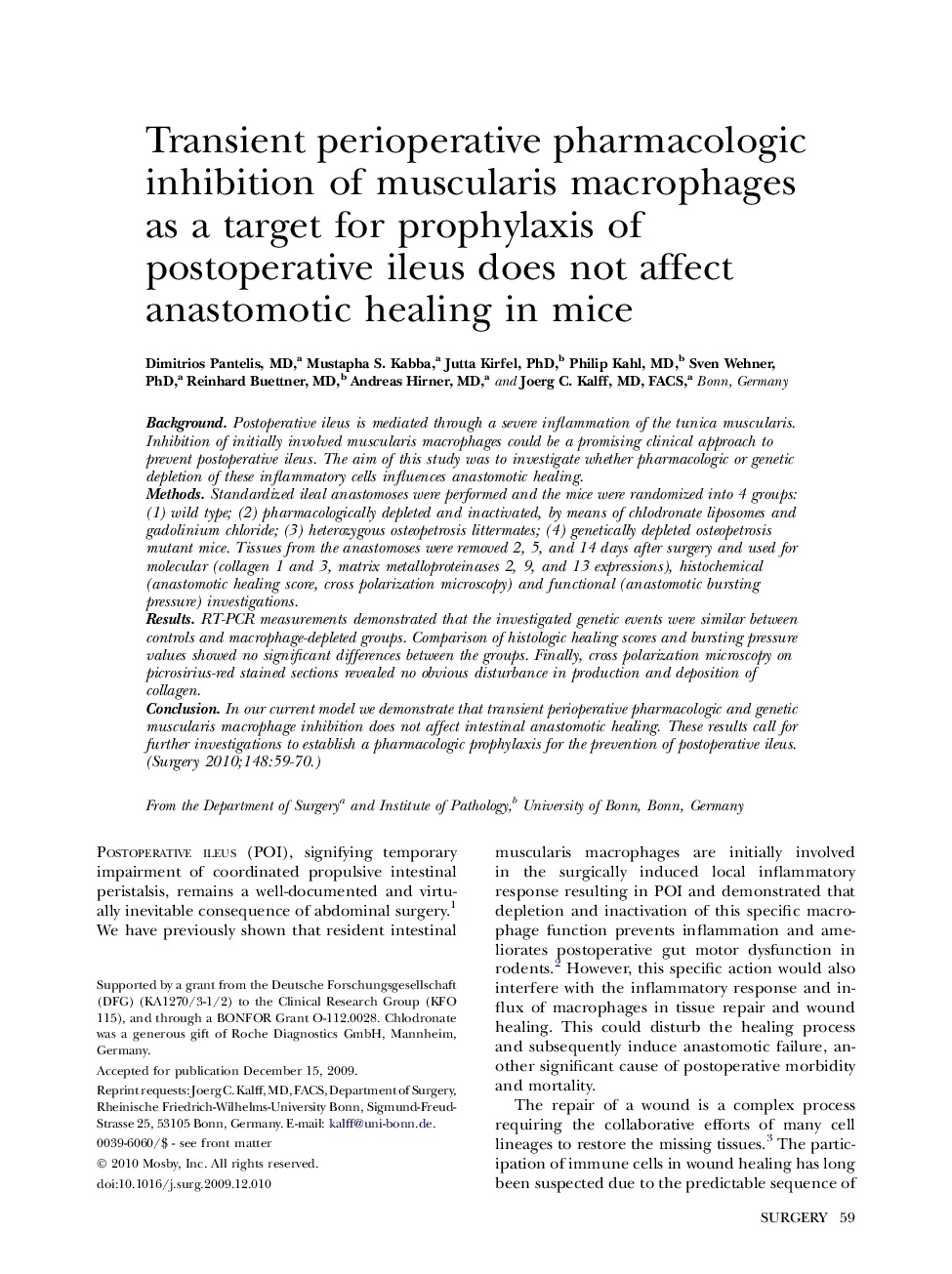| Article ID | Journal | Published Year | Pages | File Type |
|---|---|---|---|---|
| 4308670 | Surgery | 2010 | 12 Pages |
BackgroundPostoperative ileus is mediated through a severe inflammation of the tunica muscularis. Inhibition of initially involved muscularis macrophages could be a promising clinical approach to prevent postoperative ileus. The aim of this study was to investigate whether pharmacologic or genetic depletion of these inflammatory cells influences anastomotic healing.MethodsStandardized ileal anastomoses were performed and the mice were randomized into 4 groups: (1) wild type; (2) pharmacologically depleted and inactivated, by means of chlodronate liposomes and gadolinium chloride; (3) heterozygous osteopetrosis littermates; (4) genetically depleted osteopetrosis mutant mice. Tissues from the anastomoses were removed 2, 5, and 14 days after surgery and used for molecular (collagen 1 and 3, matrix metalloproteinases 2, 9, and 13 expressions), histochemical (anastomotic healing score, cross polarization microscopy) and functional (anastomotic bursting pressure) investigations.ResultsRT-PCR measurements demonstrated that the investigated genetic events were similar between controls and macrophage-depleted groups. Comparison of histologic healing scores and bursting pressure values showed no significant differences between the groups. Finally, cross polarization microscopy on picrosirius-red stained sections revealed no obvious disturbance in production and deposition of collagen.ConclusionIn our current model we demonstrate that transient perioperative pharmacologic and genetic muscularis macrophage inhibition does not affect intestinal anastomotic healing. These results call for further investigations to establish a pharmacologic prophylaxis for the prevention of postoperative ileus.
